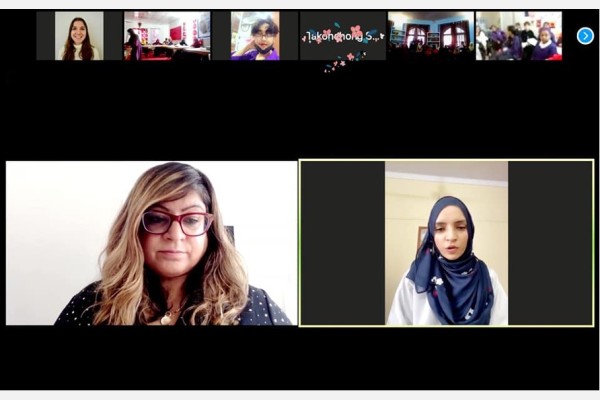Repository of Practices

ARTconnects
Secondary GCM Objectives
Dates
Type of practice
Geographic scope
Regions:
Sub Regions:
Summary
ARTconnects was founded by Salma Zulfiqar in 2017 to promote social cohesion, tolerance and wellbeing and to bring together migrants, refugees, asylum-seekers and other vulnerable people. The project builds on people’s fundamental need to express themselves creatively and to share this with others. Salma taught in-person art therapy workshops all over the UK, and in other countries, until the COVID-19 pandemic made travel impossible. ARTconnects was taken online (through Zoom sessions) in April 2020 to promote solidarity, support vulnerable isolated refugees and migrants, women and girls, with essential mental wellbeing support through educational arts-based activities and keep them connected throughout the crisis. Participants have been recruited through community organisations and NGOs working with refugees and through Salma Zulfiqar’s humanitarian contacts around the world including the United Nations. Since moving online, the project helped marginalized migrant and refugee women overcome restrictions imposed by the global pandemic to develop creativity and build self-confidence. The workshops also coached isolated migrant and refugee participants to improve communication skills and self-confidence, provided them with essential COVID-19 updates and health tips. Each workshop focuses on a theme which is introduced by Salma at the start of the session. After learning about the topic, the women are encouraged to share their feelings and talk about how they connect to it on a personal level. Salma then helps them to create related artworks, which they later share and discuss with the group. Key themes over the last year have included COVID-19, mental health, racism, and inequality. Solidarity is an overarching theme.
Organizations
Main Implementing Organization(s)
Benefit and Impact
Since 2017, ARTconnects workshops have been led across the U.K. in cities such as Birmingham Norwich, Manchester and, London - where she has collaborated with a wide range of clients including the Princes Trust, The United Nations, The Malala Fund, UK Government, The Commonwealth Games, Royal Maritime Museum in Greenwich and the Royal Society of Arts, The Midlands Arts Centre. ARTconnects has also been delivered in Greece, Dubai and Venice, where the Migration Blanket was exhibited during the Venice Biennale 2019. When the COVID-19 pandemic made travel impossible, ARTconnects was taken online in 2020 to promote solidarity, support vulnerable isolated refugees and migrants worldwide with essential mental health wellbeing support through educational art-based activities and keep them connected throughout the crisis.
Key Lessons
Recommendations(if the practice is to be replicated)
Innovation
Additional Resources
Additional Images
Date submitted:
Disclaimer: The content of this practice reflects the views of the implementers and does not necessarily reflect the views of the United Nations, the United Nations Network on Migration, and its members.
More Related Practices:
- Tablero Interactivo Estadísticas sobre Movilidad y Migración Internacional en México
- Encuesta Nacional Migrante de la Argentina (ENMA)
- Cultural advisories in the services of maternity´s health for the indigenous cross-border community Ngäbe Bugle (WHP)
- A Journey of a Thousand Mile Begins with a single Step: Djibouti’s Experience in Strengthening Migration and Displacement Data Governance
- A designated migration module for processing comprehensive migration data in the existing Information Monitoring and Evaluation system of TB patients in the Republic of Moldova (SIME TB)
Peer Reviewer Feedback:
*References to Kosovo shall be understood to be in the context of United Nations Security Council resolution 1244 (1999).
Newsletter
Subscribe to our newsletter.
